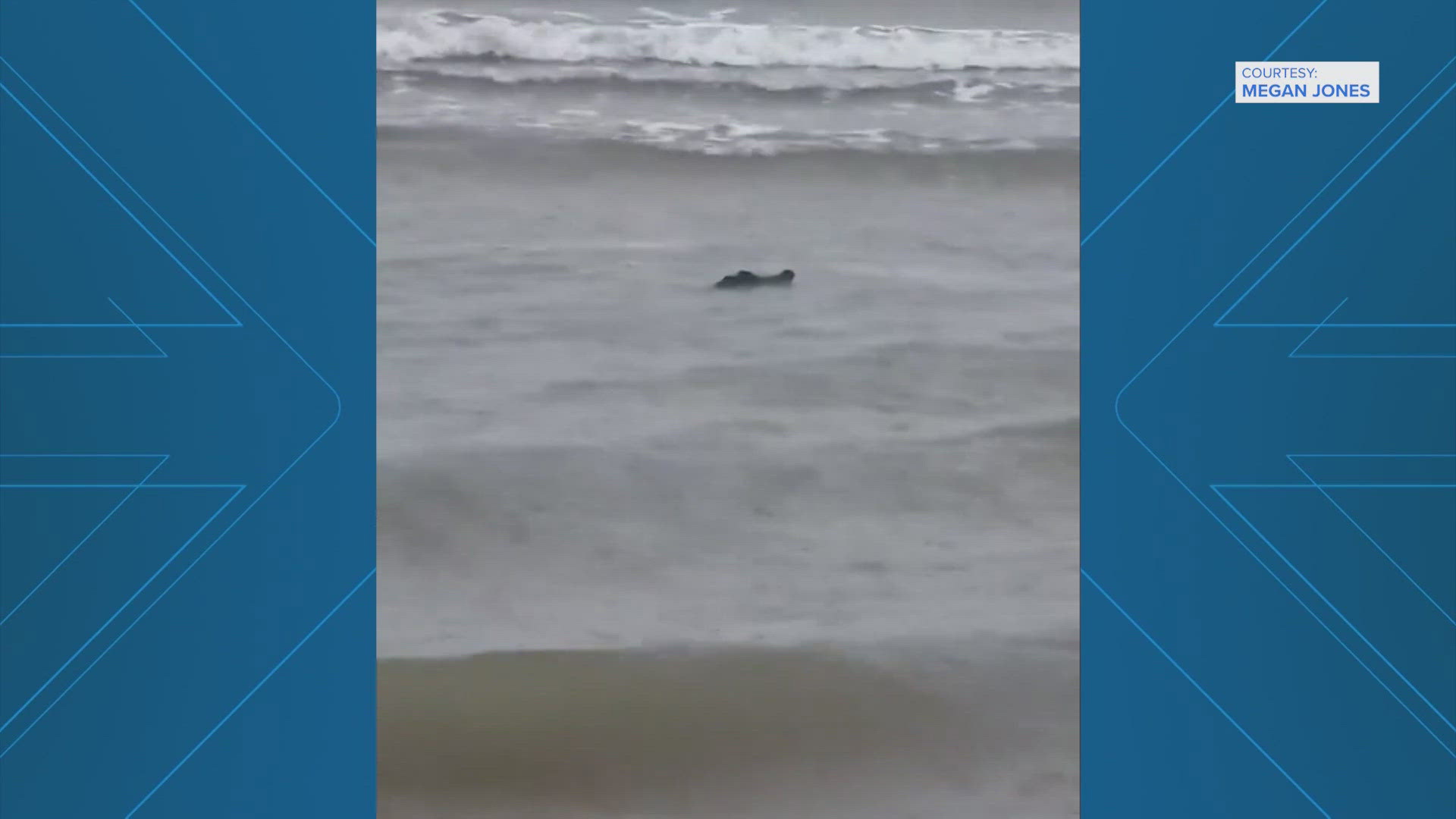BOLIVAR PENINSULA, Texas — There's been another alligator sighting on a Galveston beach.
Megan Jones shared a video of a gator she spotted in the water at Pirates Beach over the weekend.
Editor's note: The video above is from Jamaica Beach where an alligator was spotted in June 2024.
A gator was also seen last month in nearby Jamaica Beach. The City of Jamaica Beach posted a video of the creature enjoying the surf.
Back in March, Hunter Ham and his family noticed a massive gator lounging on the beach at Sea Rim State Park in Sabine Pass.
This chill dude had no fears," Ham said. "First time ever seeing a gator on the beach."
The gator chowed down on a bull redfish while Ham, his wife and kids watched.
Experts say gators in the ocean are unusual but not unheard of. They're freshwater animals, but they can tolerate saltwater for up to a few days. The gators sometimes venture into the Gulf to wash off parasites, especially after a lot of rain, according to experts.
In recent years, other gators have also been seen on Bolivar, near Galveston's north jetty, and on McFadden Beach.
Gators on Texas beaches
Texas Parks and Wildlife says gators are spotted along the Gulf Coast a couple of times a year.
Harvey Warren, a photographer in Beaumont, saw one in 2020 at McFaddin Beach, just north of Galveston. He estimated it to be a 6- to 7-foot alligator.
"Seemed to be kind of sunning himself, didn’t seem to be very aggressive," Warren told us.
"It’s not a concern as long as you keep your distance," said Dr. Lene Peterson, a researcher with the Texas A&M Galveston Marine Biology Department. “We want to understand whether that gradual change in freshwater habitats for the alligator -- will that eventually affect alligators over time?”
Peterson said her goal is to determine whether gators will adapt or move habitats as salinity increases in natural alligator territories from either storms or drought.
She said alligators could get pushed into more northern ranges of their traditional habitats.
There are two main reasons an alligator may be found in the ocean, Peterson said.
It could have been flushed out by floodwaters that moved it downriver or it's looking for food.
"These are foraging excursions that normally last a few hours and then they will return to their freshwater habitats," she said.
By traveling from one ecosystem to another, alligators ferry nutrients like nitrogen and phosphorus from place to place in the food they eat and excrete, NSF scientists explain.

